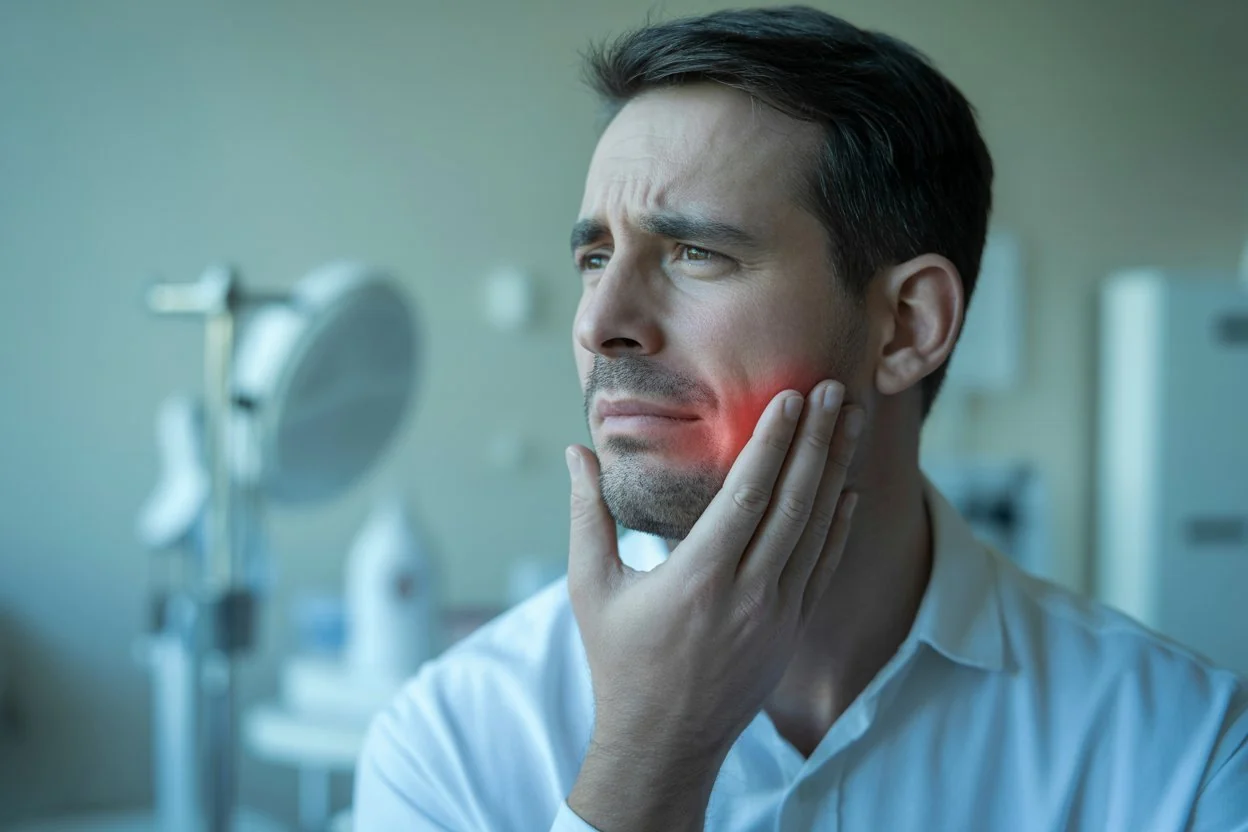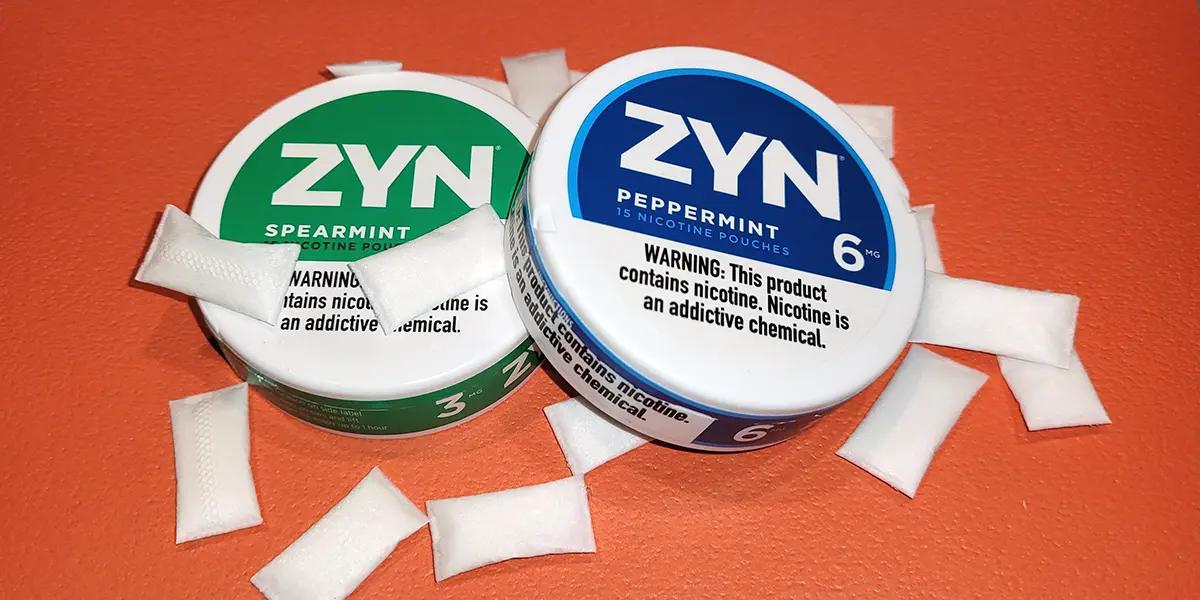You know that awkward moment when you’re yawning in the car or maybe halfway through chewing a sandwich — and suddenly your jaw kind of freezes? For a split second you’re stuck, trying to gently wiggle it back into place. Not fun. And honestly, it can be a little scary the first time it happens. That question pops into your head almost immediately: Why does my jaw keep locking?
Jaw locking isn’t just an inconvenience. It can interfere with everyday things like eating, speaking, or even working out at the gym when you clench without realizing it. At its core, this often points back to the temporomandibular joint (TMJ) — the small but powerful hinge joint that connects your jawbone to your skull.
When something goes wrong with this system — whether it’s related to the muscles of mastication, the articular disk, or general jaw movement — you might notice popping, clicking, or, in more frustrating cases, full-on jaw lock.
The good news? Most causes of jaw locking are manageable once you understand them. Some involve temporary issues like muscle strain, while others may be connected to temporomandibular joint disorders (TMD), teeth grinding, or even something as simple as too much gum chewing.
In this article, we’ll walk through 12 causes of jaw locking and the fixes that actually work — from physical therapy and jaw exercises to lifestyle shifts like reducing stress or using a night guard.
What Does It Mean When Your Jaw Locks?
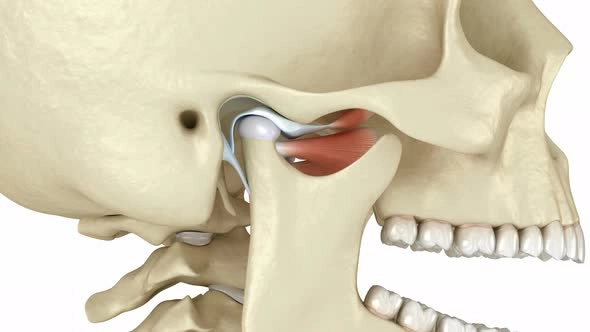
Jaw locking can mean a couple of different things, depending on how often and how severely it happens. Sometimes, it’s just a temporary “catch” in your jaw muscles — the hinge gets stuck for a moment, then releases. Other times, especially if it’s happening regularly, it could signal TMJ dysfunction or underlying joint problems in the maxillofacial area.
Think of it this way: your temporomandibular joint works like a sliding hinge. If the articular disk inside slips out of place, or if there’s inflammation from something like rheumatoid arthritis or myofascial pain syndrome, the joint doesn’t glide smoothly. That’s when you feel the “lock.”
Now, is it dangerous? Maybe not right away. Many people experience occasional jaw popping or clicking without major issues. But if you’re dealing with repeated jaw locking, chronic jaw pain, or even grinding noises when you open and close your mouth — that’s worth paying attention to. It’s your body waving a little flag saying, “Hey, something’s off here.”
Here’s a quick comparison to help clarify:
| Type of Jaw Lock | What It Feels Like | Should You Worry? |
| Temporary Lock | Happens occasionally while yawning/chewing, unlocks with gentle movement | Usually harmless, but track frequency |
| Chronic Lock | Frequent, painful, may limit full range of jaw movement | See a dentist or specialist for evaluation |
| Sudden Severe Lock | Jaw gets “stuck” and won’t unlock easily | Seek urgent medical help — could be trauma or severe TMJ dysfunction |
So while the occasional “stuck jaw” moment might not be a crisis, repeated locking could tie back to TMJ disorders, bite misalignment, or even sleep apnea. Better to catch it early than let it escalate into long-term joint problems or require surgical treatments down the road.
12 Causes of Jaw Locking and How to Fix Them
Jaw locking isn’t random — it usually comes from specific triggers like stress, injury, or joint problems. Let’s break down 12 common causes and the practical fixes that actually help.
1. Temporomandibular Joint Disorder (TMJ/TMD)
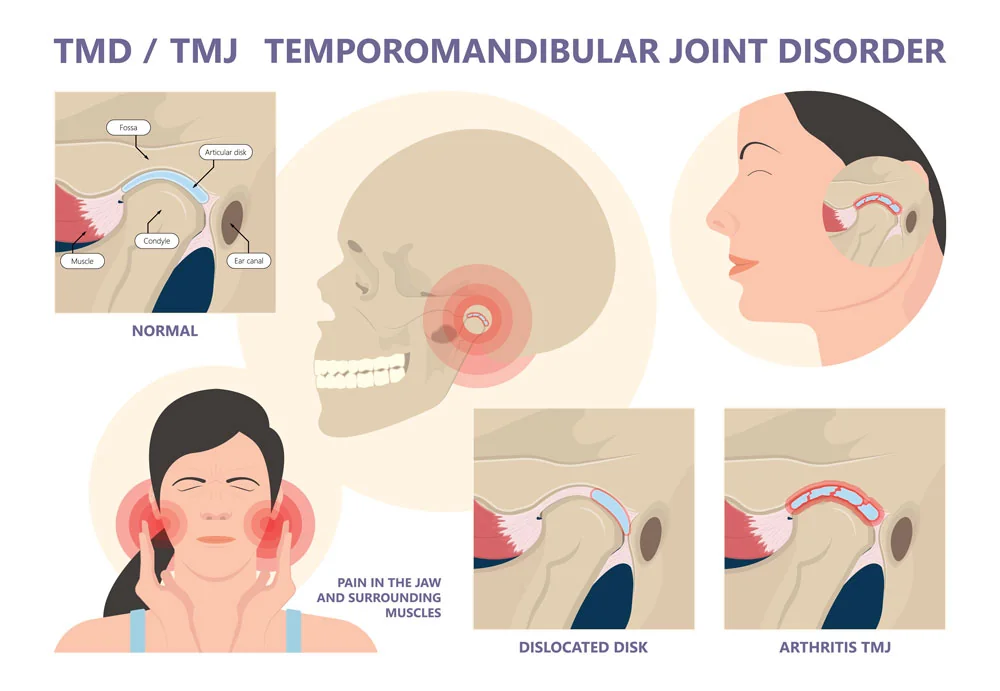
If there’s one big culprit behind people asking “why does my jaw keep locking”, it’s usually temporomandibular joint disorders. This is the broad term for issues where the hinge joint — the one connecting your jaw to the skull — isn’t working the way it should.
It might be from joint dysfunction, stress-induced jaw clenching, or even the articular disk slipping out of alignment. You might notice more than just locking. Some people report jaw pain, stiffness, jaw clicking, or even grinding noises when they chew.
I’ve had a friend who swore her jaw popped every single morning when she bit into her toast. She thought it was just “a quirky thing” until the lock started happening during workouts too. That’s when she finally saw a dentist office specializing in TMJ dysfunction.
How to Fix It:
- Physical Therapy: Gentle jaw exercises prescribed by a therapist can improve range of motion.
- Oral Appliances: Wearing a night guard or occlusal splint at night reduces pressure from clenching.
- Stress Management: Lowering your stress levels through meditation or breathwork helps, since tension often makes things worse.
- Medical Treatments: In severe cases, doctors may suggest corticosteroid injections, radio wave therapy, or even surgical treatments if conservative care doesn’t work.
Pro Tip: If you’re unsure whether you have TMD, ask for digital impressions or an intraoral scanner exam at your local dentist office (even places like a Rolesville dental office or a Mount Prospect clinic offer these now). It gives a precise view of how your bite is aligned — and whether it’s straining your joint.
2. Teeth Grinding (Bruxism)
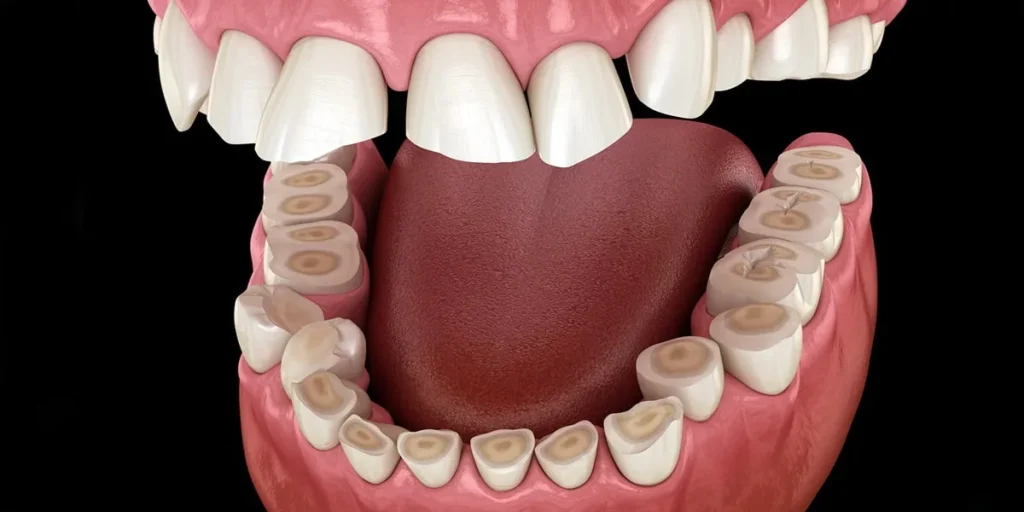
Another common cause? Teeth grinding, also known as bruxism. A lot of people don’t even realize they’re doing it — it mostly happens while you’re asleep or under stress. Over time, this constant pressure wears down teeth, strains the muscles of mastication, and can trigger jaw locking.
It’s not just about the grinding sound your partner might complain about at night. Long-term bruxism can cause muscle strain, dental diseases, and even contribute to bite misalignment. And yes, it can damage dental work like implants, denture on implants, or crowns.
How to Fix It:
- Custom Night Guard: A professionally made mouth splint or occlusal splint is better than the cheap store-bought ones. It cushions your teeth and eases tension.
- Improve Sleep Hygiene: Poor sleep and even sleep apnea can worsen grinding. Sometimes, treating the sleep disorder reduces the jaw issues.
- Stress Relief: Since bruxism is often stress-related, things like yoga, breathwork, or even just unplugging from screens at night can calm the nervous system.
- Dental Evaluation: A neuromuscular dentist can assess whether your grinding is linked to a bite correction issue.
Here’s a quick side-by-side for clarity:
| Teeth Grinding Impact | Why It Matters | Possible Fix |
| Worn enamel & chips | Weakens teeth, may lead to cavities | Custom night guard |
| Jaw pain & morning headaches | Strain on jaw muscles and TMJ | Stress reduction + oral appliance |
| Locking or stiffness | Ongoing strain causes TMJ dysfunction | Physical therapy or bite adjustment |
Sometimes people only realize they grind after their dentist points out the signs. If you’re waking up with sore jaw muscles or unexplained jaw pain, it’s worth getting checked.
3. Jaw Injury or Trauma
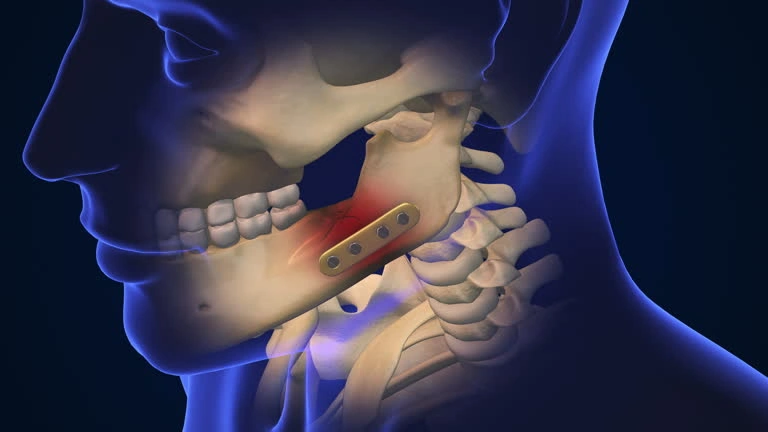
Sometimes the answer to “why does my jaw keep locking” is pretty straightforward — an actual injury or trauma. Think about contact sports, a fall, or even something simple like clenching too hard during a tough workout. The maxillofacial area is delicate; even small impacts can strain the hinge joint or the articular disk that helps your jaw slide smoothly.
I remember after a minor biking accident, my jaw felt tight for weeks. At first, I brushed it off as “just sore muscles.” But later I realized it was more like temporomandibular joint dysfunction, since the joint itself had taken a hit.
Signs of trauma-related jaw issues:
- Sharp jaw pain when chewing or talking
- Swelling around the joint
- Sudden jaw popping or jaw clicking
- Difficulty opening the mouth fully
How to Fix It:
- Immediate Care: Use an ice pack right after the injury to reduce swelling. Switch to a heat pack later for stiffness.
- Rest the Joint: Avoid hard foods, chewing gum, or anything that strains the jaw muscles.
- Medical Evaluation: If locking persists, a dentist office or even a maxillofacial specialist should check for fractures or joint dislocation.
- Protective Gear: Athletes can prevent future problems with mouthguards.
Pro tip: If you’re recovering from trauma or injury, try a soft food diet for a week — smoothies, soups, mashed veggies. It gives the muscles of mastication a chance to heal without constant stress.
4. Stress & Anxiety-Related Clenching
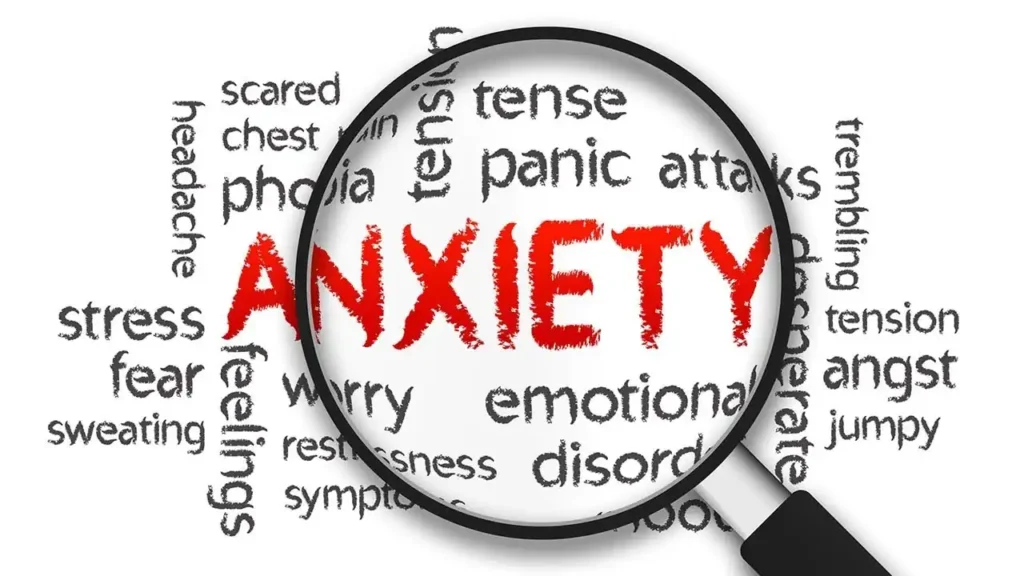
Here’s one that sneaks up on almost everyone: stress and anxiety. When your body is tense, it’s easy to subconsciously tighten the jaw. Over time, that pressure builds into jaw locking, muscle strain, and even myofascial pain syndrome.
Maybe you’ve noticed it yourself. You’re working on a tight deadline, or maybe stuck in traffic, and suddenly realize your jaw feels sore. That’s stress-related clenching at work. It doesn’t sound serious, but over time it can contribute to TMJ disorders and chronic jaw issues.
How to Fix It:
- Mindful Awareness: Set reminders during the day to check if your jaw is tight. (Hint: if your teeth are touching, you’re clenching.)
- Relaxation Techniques: Try progressive relaxation, meditation, or even breathwork before bed.
- Therapy or Counseling: If anxiety is a root cause, talking with a therapist can make a real difference.
- At-Home Care: A quick heat pack across the jaw muscles can ease tension after a stressful day.
Here’s a quick table that shows how stress ties directly to jaw problems:
| Stress Trigger | Jaw Response | Possible Fix |
| Work deadlines | Jaw clenching, headaches | Breathwork + posture checks |
| Poor sleep | Grinding teeth, morning stiffness | Night guard, sleep hygiene |
| Anxiety cycles | TMJ dysfunction, jaw pain | Therapy + progressive relaxation |
And honestly — don’t underestimate this one. Lowering your stress levels may sound too simple, but for many people it’s the real fix for jaw locking.
5. Arthritis (Osteoarthritis & Rheumatoid Arthritis)
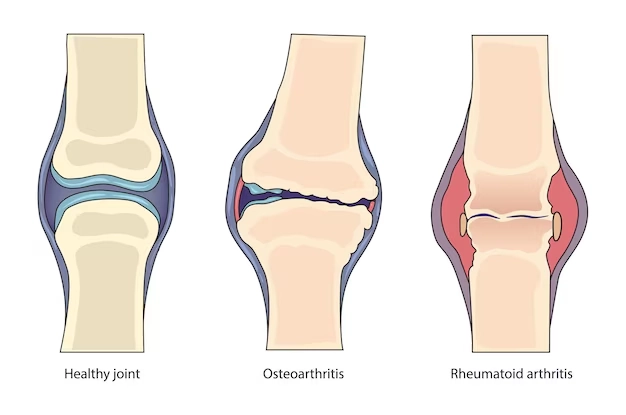
Another reason people end up asking “why does my jaw keep locking” is arthritis — yes, the same condition most people associate with knees or hands. Both osteoarthritis and rheumatoid arthritis can affect the temporomandibular joint, leading to stiffness, pain, and eventually, limited jaw movement.
What’s happening here? In osteoarthritis, the cartilage in the hinge joint wears down. In rheumatoid arthritis, the immune system mistakenly attacks the joint lining, causing inflammatory disorders.
Either way, the result is similar: the articular disk doesn’t glide smoothly, and the joint problems cause that dreaded lock.
Common signs arthritis may be affecting your jaw:
- Chronic jaw pain that worsens in the morning
- Grinding or popping sounds in the joint
- Difficulty opening your mouth wide
- Swelling or tenderness near the maxillofacial area
How to Fix It:
- Anti-Inflammatory Support: Medications (like corticosteroids or anti-inflammatory drugs) prescribed by a doctor can calm the joint.
- Jaw Exercises: Gentle stretches improve flexibility in the jaw muscles.
- Diet & Lifestyle: Adding anti-inflammatory foods (omega-3s, leafy greens) helps long-term.
- Specialist Care: Sometimes, a neuromuscular dentist or rheumatologist may recommend surgical treatments if conservative options fail.
Pro tip: A warm heat pack in the morning works wonders for stiffness. Some patients alternate heat or cold packs depending on whether they’re dealing with swelling (cold helps) or tightness (heat helps).
6. Poor Posture (Tech Neck & Alignment Issues)
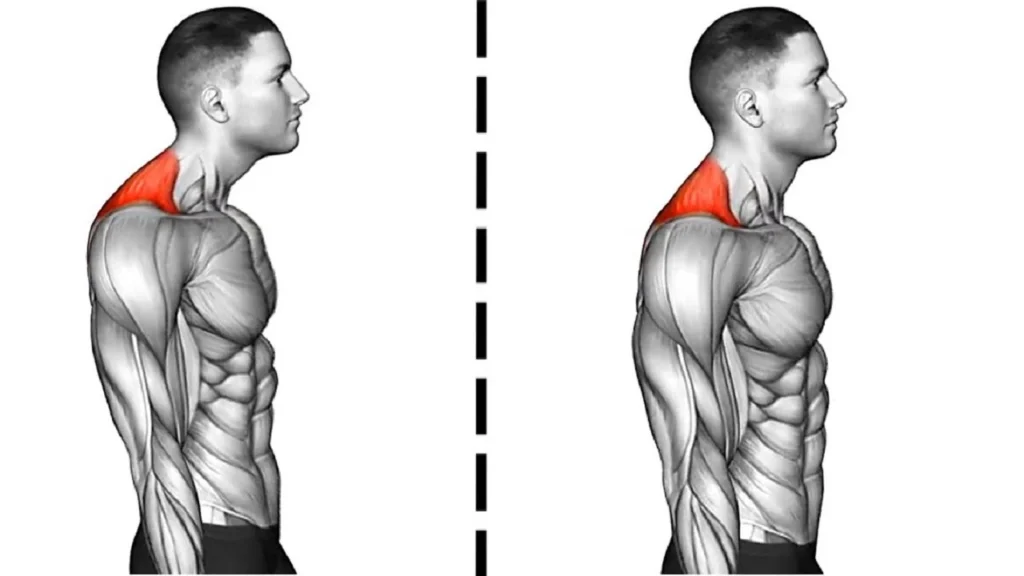
Believe it or not, your posture can influence whether your jaw decides to lock up. If you’re slouched at a desk all day or constantly looking down at your phone (hello, “tech neck”), you’re shifting pressure into the muscles of mastication and even creating subtle bite misalignment. Over time, that strain reaches the temporomandibular joint, leading to TMJ dysfunction.
I noticed this myself during remote work. Hours of hunching at the laptop made my shoulders sore, but I didn’t connect it to jaw tension until I felt a little “catch” while chewing dinner one night. Funny how the body links together.
Why posture matters for jaw health:
- Slouched shoulders pull the head forward, straining the hinge joint
- Poor workout form (like heavy lifting without alignment) creates muscle strain
- Desk setups without ergonomic design encourage jaw clenching unconsciously
Fixing posture-related jaw locking:
- Ergonomic Setup: Adjust monitor height, use a supportive chair, and keep feet flat.
- Posture Exercises: Simple moves like chin tucks or wall angels reduce tension.
- Mindful Breaks: Every hour, check: are your shoulders relaxed? Is your jaw free (not clenched)?
- Physical Therapy: A therapist can guide posture correction and jaw exercises together.
Here’s a quick snapshot of the link:
| Posture Habit | Jaw Effect | Solution |
| Slouching at desk | Jaw clenching, stiffness | Ergonomic desk + stretch breaks |
| Tech neck (phone use) | TMJ dysfunction, headaches | Chin tuck exercises |
| Poor gym form | Muscle strain, jaw pain | Correct form + physical therapy |
Pro tip: Try this mini-check: rest your tongue lightly on the roof of your mouth and relax your jaw. If your teeth are touching when they don’t need to be — that’s a subtle sign posture might be affecting your jaw issues.
7. Dental Issues (Misalignment, Bite Problems & More)
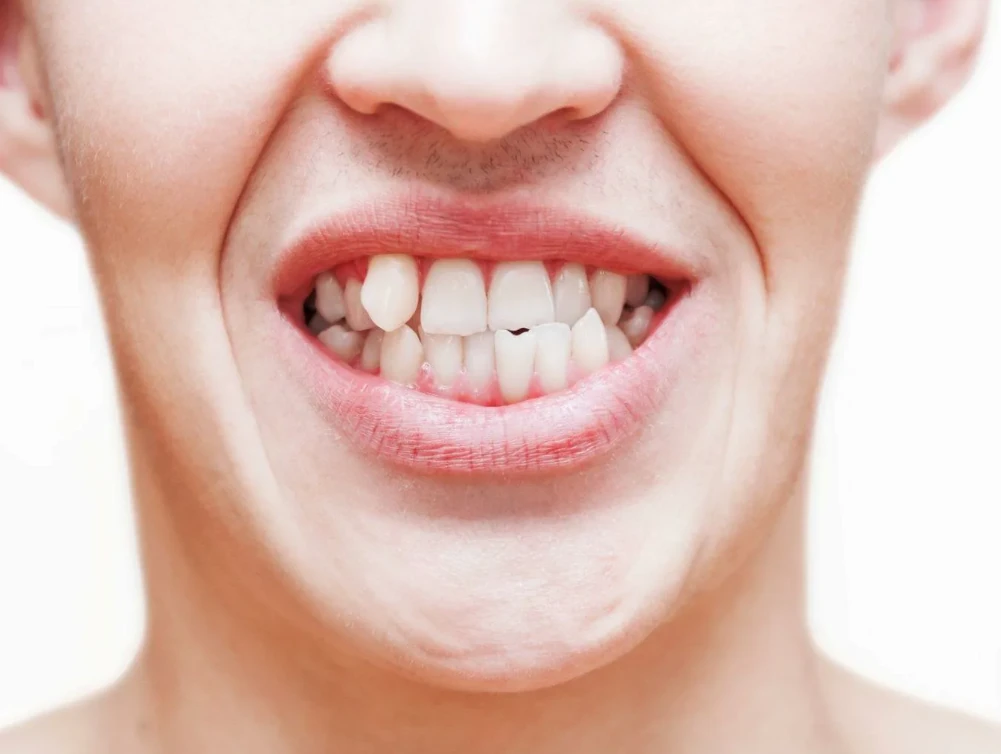
Sometimes the answer to “why does my jaw keep locking” isn’t about stress or injury at all — it’s your teeth. When you have bite misalignment (also called malocclusion), crooked teeth, or poorly fitted dental implants, the temporomandibular joint ends up compensating for that imbalance. Over time, this uneven pressure leads to TMJ disorders, jaw strain, and eventually, jaw locking.
Even small things, like a crown that sits too high or an old denture on implants, can throw off how your teeth meet. I once had a friend who blamed her headaches on “bad sleep,” only to learn that her occlusal splint didn’t fit properly. Once her dentist corrected it with modern tools like an intraoral scanner and digital impressions, her jaw stopped locking during meals.
Fixes for dental-related jaw locking:
- Orthodontic Treatment: Braces, aligners, or other bite correction options.
- Bite Adjustment: Small refinements from a dentist office or neuromuscular dentist can make a huge difference.
- Regular Check-Ups: Catching minor dental issues early prevents bigger jaw problems later.
- Mouth Splints: Custom devices like an oral appliance or occlusal splint reduce stress on the joint.
Here’s a quick breakdown:
| Dental Issue | How It Affects Jaw | Solution |
| Bite misalignment | Strains jaw muscles and joint | Orthodontic treatment |
| Poorly fitted crown/implant | Causes uneven bite | Digital impressions + correction |
| Crooked teeth | Chronic jaw issues, possible jaw locking | Braces or aligners |
| Old dentures/implants | Interferes with smooth jaw movement | Replace with updated fit |
Pro tip: If you’re in doubt, get a second opinion from a dentist office that uses advanced diagnostics like digital impressions. Traditional bite checks sometimes miss the subtle misalignments that really matter for TMJ dysfunction.
8. Sleep Disorders (Apnea, Night Clenching & More)
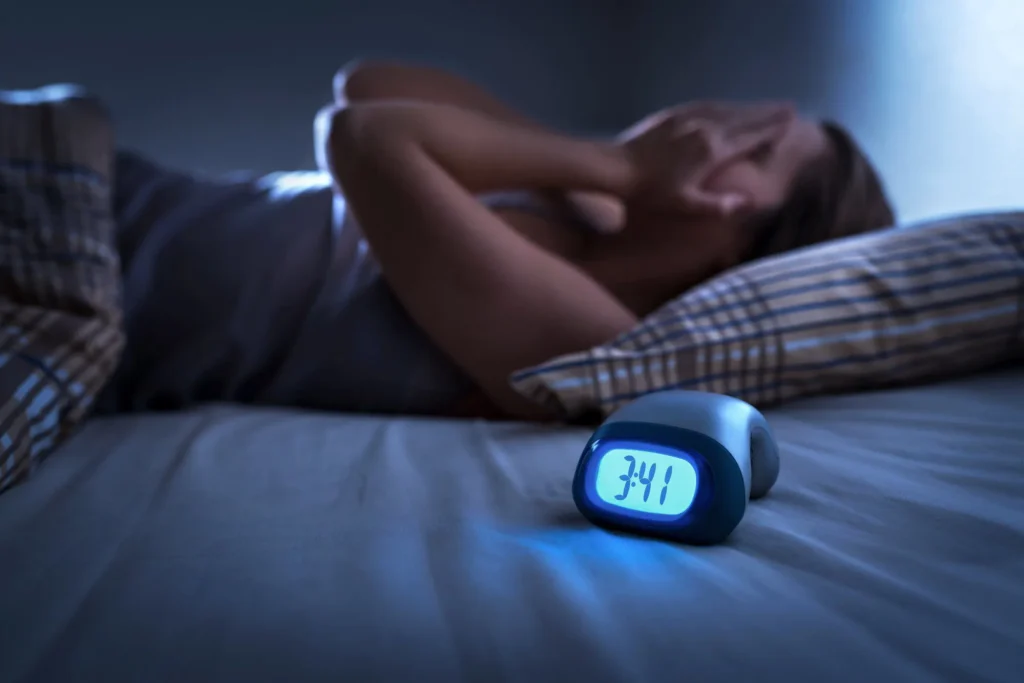
Another sneaky reason behind “why does my jaw keep locking”? Sleep disorders. Conditions like sleep apnea can disrupt normal breathing, leading your body to tense up — and your jaw muscles often take the hit. Add in nighttime teeth grinding (a form of bruxism), and you’ve got the perfect recipe for jaw pain and jaw locking.
It’s easy to miss this connection because, well, you’re asleep when it happens. But the signs show up in the morning: stiff jaw, sore teeth, even headaches. Studies have linked sleep apnea not only to grinding noises but also to higher risks of TMJ dysfunction.
Fixes for sleep-related jaw issues:
- Sleep Study: If apnea is suspected, a sleep clinic can confirm it.
- CPAP Therapy: Continuous positive airway pressure keeps the airway open and reduces clenching.
- Oral Appliance: A custom-fitted mouth splint can reposition the jaw to help both breathing and jaw movement.
- Jaw-Friendly Sleeping Positions: Side sleeping often eases pressure compared to stomach sleeping.
Here’s how sleep disorders stack up in relation to jaw locking:
| Sleep Issue | Jaw Impact | Possible Fix |
| Sleep apnea | Tension + nighttime clenching | CPAP therapy, oral appliance |
| Nighttime bruxism | Worn teeth, TMJ dysfunction | Custom night guard |
| Poor sleep quality | Higher stress levels → jaw clenching | Improve sleep hygiene |
Pro tip: If you’re waking up with sore jaw muscles or stiffness daily, don’t just chalk it up to “sleeping funny.” Ask your dentist if a sleep apnea screening or oral appliance might help. Sometimes solving the sleep issue solves the jaw issue, too.
9. Excessive Chewing (Gum, Tough Foods & Habits)

Sometimes “why does my jaw keep locking” has a surprisingly simple answer: you’re just overusing it. Constant gum chewing, eating tough meats, or snacking on crunchy foods all day puts enormous stress on the muscles of mastication. Think of it like overtraining at the gym — only this time it’s your jaw that’s doing the heavy reps.
I used to chew gum constantly while studying, thinking it helped me focus. What I didn’t realize was that it was slowly leading to jaw pain and occasional jaw popping. The strain on my hinge joint made it harder to open my mouth wide, and one day, mid-bite on a bagel, I felt that dreaded jaw lock.
Signs your chewing habits are stressing your jaw:
- Tired or sore jaw muscles after long meals
- Clicking or grinding noises while chewing
- Pain when eating tougher foods like steak or jerky
- Increased frequency of jaw locking episodes
How to Fix It:
- Cut back on gum chewing (especially sugar-free gum, which people often chew endlessly).
- Choose softer foods temporarily to let your jaw muscles recover.
- Alternate sides when chewing to avoid overloading one part of the temporomandibular joint.
- Add short jaw exercises or stretches during the day to balance muscle activity.
Pro tip: If you really love gum, limit it to just 5–10 minutes instead of hours at a time. Your temporomandibular joint will thank you later.
10. Dehydration & Muscle Imbalance

This one might sound a little unexpected, but dehydration and poor electrolyte balance can contribute to jaw locking too. Your jaw muscles, like all muscles in the body, rely on proper hydration and minerals (like magnesium, calcium, potassium) to contract and relax smoothly. Without enough fluids or nutrients, you may end up with cramps, spasms, or even temporomandibular joint dysfunction over time.
It’s not just about water, either. If your diet is low in magnesium-rich foods (nuts, leafy greens, whole grains), your jaw movement may feel tighter. Combine that with daily stress and occasional teeth grinding, and you’ve got a recipe for jaw issues.
Simple fixes for dehydration-related jaw problems:
- Stay Hydrated: Aim for steady water intake throughout the day, not just big gulps at once.
- Electrolyte Balance: Add foods rich in magnesium, potassium, and calcium.
- Muscle Recovery: Gentle jaw exercises plus stretching help release tightness.
- Lifestyle Balance: If you drink lots of caffeine or alcohol, remember they dehydrate and can worsen jaw locking.
Here’s a quick snapshot:
| Muscle Issue | Why It Happens | Fix |
| Jaw cramps or spasms | Dehydration, low electrolytes | More water + magnesium-rich foods |
| Stiffness after workouts | Muscle imbalance in jaw + neck | Physical therapy, stretching |
| Frequent jaw fatigue | Lack of nutrients for recovery | Balanced diet + hydration |
Pro tip: Try starting your day with a glass of water and a magnesium-rich breakfast (like oatmeal with almonds). It’s a small step, but it can ease jaw strain — especially if you’re someone who clenches during workouts.
11. Neurological Conditions (Nerve-Related Jaw Locking)
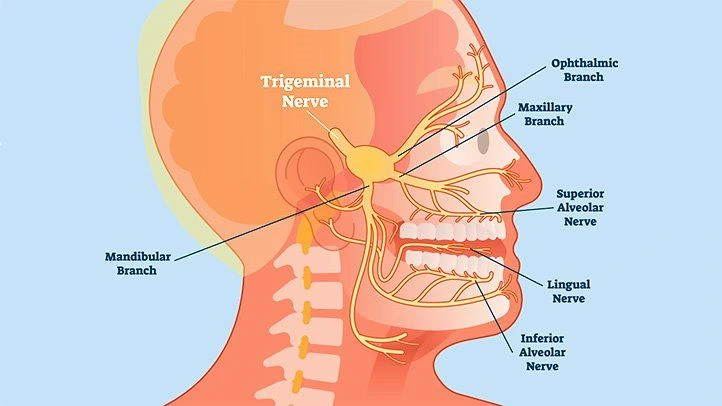
Sometimes the answer to “why does my jaw keep locking” isn’t in the muscles or teeth — it’s in the nerves. Certain neurological disorders can interfere with the way your temporomandibular joint and jaw muscles coordinate. When nerve signals misfire, you may experience sudden jaw spasms, facial twitching, or locking episodes.
Conditions like trigeminal neuralgia, dystonia, or even complications from a past stroke can make your jaw muscles tighten involuntarily. It doesn’t happen to everyone, but when it does, the feeling is distinct — like your body is hitting a pause button on jaw movement.
Common signs that nerve issues may be involved:
- Sharp or shooting facial pain along the jawline
- Muscle twitches or involuntary jaw clenching
- Jaw locks that happen even when you’re not chewing
- Numbness or tingling around the mouth
How to Manage It:
- See a neurologist: Jaw-related nerve disorders often need medical input.
- Medication: Anti-spasmodic or nerve pain medication may help.
- Stress management: Since stress worsens nerve misfires, try relaxation techniques.
- Physical therapy: Gentle jaw stretches to keep muscles from stiffening.
Pro tip: If your jaw locking comes with sudden sharp nerve pain or numbness, don’t delay — consult a doctor immediately. It may not be “just TMJ.”
12. Infections & Inflammation Nearby
Not all jaw locking causes start in the jaw itself. Sometimes, nearby infections or inflammatory disorders trigger it. A sinus infection, for instance, can spread pressure into the jaw joint, making it harder to open fully. Similarly, ear infections and tonsil infections can irritate the muscles around your jaw.
Think of it like this: your jaw, sinuses, and ears share close quarters. When one is inflamed, the others often feel it too. This is why doctors sometimes check your ears or throat when you complain about jaw pain or locking.
Typical triggers include:
- Sinus infections → pressure and swelling near the jaw joint
- Ear infections → inflammation that spreads to surrounding muscles
- Arthritis flare-ups → inflammation in the temporomandibular joint
- Dental abscesses → infection that radiates into the jaw
Solutions:
- Treat the root infection (antibiotics for bacterial causes, rest and fluids for viral).
- Warm compresses to ease jaw stiffness.
- Anti-inflammatory foods or medication.
- Once infection clears, add gentle jaw exercises to regain mobility.
Here’s a quick reference table:
| Condition | How It Affects Jaw | Fix |
| Sinus infection | Pressure on TMJ → jaw locking | Decongestants, steam therapy |
| Ear infection | Inflammation radiates to jaw | Antibiotics (if bacterial) |
| Dental abscess | Spreads infection into jaw joint | Dental treatment, drainage |
| Arthritis | Swelling inside TMJ | Anti-inflammatory care |
Pro Tip: If your jaw keeps locking only when you’re also battling earaches, sinus pain, or throat infections, the real culprit might not be your jaw at all — it’s the inflammation next door.
When to See a Doctor for Jaw Locking
Okay, so maybe you’re asking yourself: “Why does my jaw keep locking if it’s just once in a while? Should I even be worried?” That’s a fair question. Occasional jaw popping or clicking during a yawn might not mean much. But if you’re getting repeated episodes of jaw lock, or it’s paired with pain, swelling, or headaches, that’s when it’s time to pay attention.
Red flags that mean it’s doctor time:
- Persistent jaw pain that doesn’t improve with home remedies (like heat packs or ice packs).
- Your jaw gets “stuck” often and needs manual adjustment to move.
- Pain radiates to your ear, neck, or maxillofacial area.
- Grinding noises or jaw clicking that worsens over time.
- Noticeable bite misalignment (your teeth don’t fit together the way they used to).
Now, here’s where it gets a little confusing: should you see a dentist or a physician first?
- Dentist: Best if you suspect bite misalignment, teeth grinding (bruxism), or dental diseases. A neuromuscular dentist or Rolesville dental office might even use digital impressions or an intraoral scanner to check how your bite functions.
- Physician: Better if you suspect arthritis, sinus infection, rheumatoid arthritis, or neurological conditions.
- Maxillofacial surgeon: For cases where conservative treatments don’t help and surgical treatments or corticosteroid injections may be needed.
Pro tip: If you’re unsure, start with your dentist office — especially if your jaw issues are paired with dental problems like malocclusion, grinding teeth, or gum pain. Dentists are trained to spot temporomandibular joint dysfunction (TMJ dysfunction) early, and they’ll send you to a specialist if needed.
Preventing Jaw Locking Long-Term
Here’s the part nobody really wants to hear — a lot of jaw locking causes come back to everyday habits. The good news is that means you can do a lot to prevent jaw issues before they get worse.
Daily habits that protect your temporomandibular joint:
- Hydrate consistently → Keeps muscles of mastication flexible and prevents cramping.
- Stress management → Meditation, journaling, or even yoga helps reduce subconscious clenching.
- Posture correction → Avoid “tech neck” by adjusting your workstation; consider posture exercises.
- Limit gum chewing & hard foods → Constant strain leads to muscle fatigue and eventually myofascial pain syndrome.
- Night guard or occlusal splint → Prevents teeth grinding at night, reducing pressure on your hinge joint.
- Gentle jaw exercises → Simple movements taught in physical therapy can improve jaw movement and keep the articular disk in alignment.
- Balanced diet → Magnesium and potassium-rich foods keep muscle contractions under control.
Here’s a small example routine you could try after a long day:
- Apply a heat pack for 10 minutes.
- Do slow jaw stretches (side to side, gentle open-close).
- Practice deep breathing for 5 minutes to lower stress levels.
- Avoid late-night snacking on tough foods (jerky, hard candy, gum).
Pro tip: If you sit at a desk all day, add jaw-friendly stretches along with your neck and shoulder exercises. Sometimes just realigning your skeleton abnormalities or fixing small posture errors can reduce jaw stress more than you’d think.
Final Thought
So, why does my jaw keep locking? After diving through 12 causes and fixes, the takeaway is this: most cases of jaw locking connect back to manageable issues like TMJ disorders, teeth grinding, jaw injury, stress, or posture problems.
And while it can feel alarming in the moment, many solutions — from night guards and physical therapy to heat packs and stress relief — can dramatically reduce symptoms. Of course, not every case is simple. Sometimes, inflammatory disorders like rheumatoid arthritis, neurological issues, or dental diseases require professional care.
The key is listening to your body (and jaw) and not brushing it off if locking happens more than once in a while. Takeaway? You’ve got options. From jaw exercises at home to dentist-guided bite correction, from hydration and posture care to advanced treatments like oral appliances or corticosteroid injections — the goal is the same: restore smooth, pain-free jaw movement so you can chew, yawn, and live without worrying about your jaw seizing up.
Frequently Asked Questions
1. Can I unlock my jaw at home when it gets stuck?
Sometimes, yes. Gentle jaw exercises (like slowly moving your jaw side to side) can help. A warm compress or heat pack may also relax the jaw muscles. But if your jaw keeps locking often, that’s a sign of temporomandibular joint dysfunction (TMJ dysfunction), and you should check with a dentist office.
2. Does jaw locking go away on its own?
Occasional jaw lock after yawning or chewing gum might resolve quickly. But if you’re experiencing repeated jaw locking episodes, it usually points to TMJ disorders, bite misalignment, or teeth grinding. These don’t usually disappear without proper care like a night guard, oral appliance, or bite correction treatment.
3. Is jaw locking linked to cavities or dental problems?
Indirectly, yes. While cavities alone don’t usually cause jaw locking, untreated dental diseases, abscesses, or misaligned teeth can put strain on the hinge joint and make locking worse. That’s why regular dental check-ups matter.
4. Can exercise trigger jaw locking?
Surprisingly, yes. Poor form during workouts (especially heavy lifting with clenched teeth) can strain your maxillofacial area. Over time, this stress may trigger temporomandibular joint disorders or flare-ups of myofascial pain syndrome. Pro tip: try to keep your jaw relaxed when lifting weights.
5. Does sleeping position matter for jaw locking?
Absolutely. Sleeping on your stomach or with your face pressed into a pillow can increase pressure on the temporomandibular joint. Back sleeping with good neck support is often best for reducing jaw pain and preventing jaw popping at night.
6. What’s the difference between jaw clicking and jaw locking?
Jaw clicking is usually a noise when the articular disk shifts as you open and close your mouth. Jaw locking means your jaw actually gets stuck — either you can’t open it wide (closed lock) or can’t close it fully (open lock). Both can signal TMJ disorders or joint problems.
7. Will a night guard really help with jaw locking?
Yes, in many cases. A custom night guard or occlusal splint prevents grinding teeth (bruxism) at night, which reduces wear on the temporomandibular joint. Over time, this can ease jaw issues like popping, pain, and locking.
8. Are there non-surgical treatments for chronic jaw locking?
Definitely. Before considering surgical treatments, doctors often recommend physical therapy, stress management, heat/cold packs, radio wave therapy, corticosteroid injections, or transcutaneous electrical nerve stimulation (TENS). Surgery is usually the last option.
9. Can jaw locking be related to arthritis?
Yes. Both osteoarthritis and rheumatoid arthritis can affect the temporomandibular joint, causing inflammation and stiffness. This leads to jaw movement issues and sometimes even grinding noises or chronic locking. Anti-inflammatory medication or dietary adjustments can help manage it.
10. Should I see a dentist or a neurologist for jaw locking?
It depends. If the issue feels dental-related (teeth grinding, misalignment, dental implants, or gum chewing habits), a dentist office or neuromuscular dentist is the right first step. If you have numbness, facial tingling, or suspected neurological conditions, then a neurologist might be better. Sometimes you’ll end up seeing both for a full evaluation.

